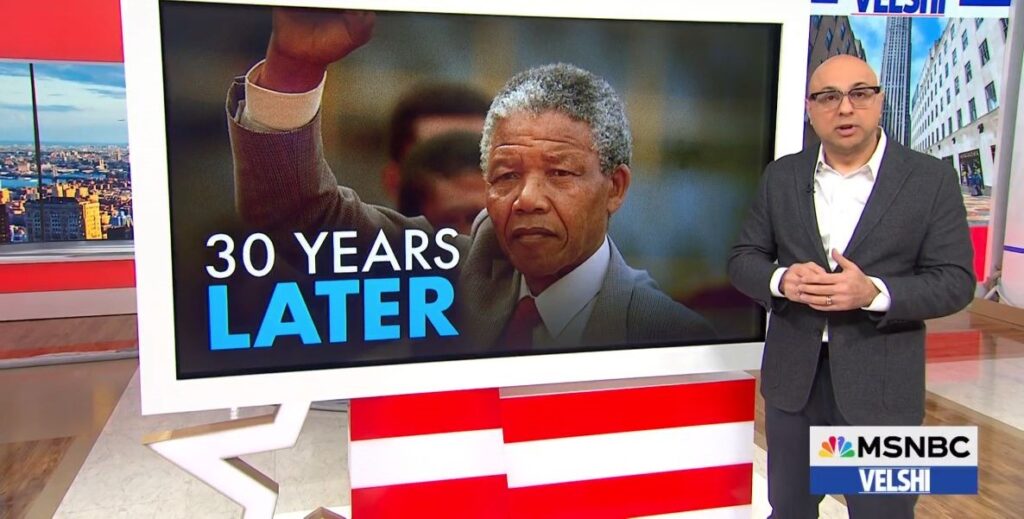It has been 30 years since the end of apartheid in South Africa, but the legacy of institutional racism paves the hard road to democracy. Ali Velshi, son of South African Indians, vividly recalls the day in 1990 when anti-apartheid leader Nelson Mandela was released from prison. He would become the nation’s first Black president in 1994.
In his new book Small Acts of Courage: A Legacy of Endurance and the Fight for Democracy, Velshi recalls watching Mandela’s release on television as a college student in Canada. South Africa had been ruled by white settlers from Europe, subjugating the Black population to exploitation and institutional racism.
Mandela was jailed for organizing the resistance to apartheid in the form of protests and demonstrations. His prison sentence took a toll on him physically and took a toll on South Africa as a nation. His release was a new day for both. But since then, they have experienced continued poverty and struggle. South Africans are heading to the polls at the end of May, and for the first time since 1994, the ruling ANC party is at risk of losing its absolute majority since Mandela was president 30 years ago, holding his successors accountable.
“This is democracy in action, and South Africa’s early freedom fighters understood that,” says Velshi. “While they overcame apartheid, the struggle for true equality was far from over.”
LISTEN: ALI VELSHI ON THE END OF APARTHEID IN SOUTH AFRICA
WATCH: VELSHI RECALLS NELSON MANDELA’S RELEASE AND LEGACY


